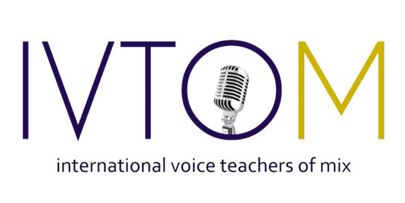Appoggio
Appoggio by Dominika Plonka:
May 13, 2019
Appoggio. This term was unfortunately translated as a support. And even more unhappily it is understood by some vocalists and even teachers – as “pressure”. What then happens to our voice when we do this “pressure” from the abdomen?
Well – let’s check it out:
1) Take a deep breath and say long: sssssssss
2) Now on the same sssssssss, without interrupting the hissing, press the air (give a pressure from your belly) as if you were to lift the weight. And watch what is happening to the muscles in your throat.
Can you feel it? Those muscles clenched! Yes, pressure causes throat clenching! Because
that’s what these muscles are for.
To be more specific, the false cords are used to close the air in the lungs so that we can lift the weight or do what we do in the toilet (and women use them to give birth to a child).
The vocal cords protect us from inhaling something that flies in the air: bee pollen,
insects. And that would be all, if we talk about the functions of vocal folds. Talking and singing is an additional gift from God. We use vocal folds for phonation, getting them together with a few small, delicate muscles (arytenoids, lateralis …) and letting air out through adducted vocal folds.
But what is this support?
So these tiny muscles are bringing the vocal cords together. When we begin to exhale the air – Bernoulli’s phenomenon triggers the movement of the cords: sucking in, that means – adducting. We keep exhaling, so the strings abduct, and then they close again – and so over and over (on a4 this happens 440 times per second). The vocal cords & “cut”; exhaled air into portions – this is how the sound wave is produced.
Well, how does it refer to support?
Well, the air pressure needed to start the sound should be about 40 cm H20, which is more or less the weight of an apple.
And what are we doing?
Our throat can tighten very much. Each one of us is able to lift a colleague, that is, we know that we can carry about 50 kg. So we can tighten our throat so that the pressure under the strings will be 50 kg, not 40 kg. It’s over 100 times more than you need!
Yes, understanding the support as pressure – we give too much strength. We tighten our throat and harm our vocal cords. They are very delicate. So in order to give the right amount of strength / pressure – we have to learn to REDUCE the strength, to GIVIE LESS. It’s like catching a butterfly: you cannot catch it too strongly because you will kill him.
But how to give less pressure, if we need to have enough air in the lungs? Here comes the term: appoggio.
So what does this appoggio mean?
Appoggio is an activity that will reduce the air pressure in the lungs during the phonation.
How to do it? The easiest way: increasing the volume (the size) of the lungs! So when we exhale, we keep our ribs and sternum in the inspiratory position, and even more – we expand them.
Let’s try to do it:
Put one hand on the sternum and the second one on the ribs. Breathe. See how they rise during the inhalation and fall off during the exhalation. Now find out that you can move your sternum and ribs regardless of whether you breathe in, exhale, or just do nothing (if you have a problem with the mobility of these muscles – you may need a physical therapist). So – can we move our ribs? Yes!
And a diaphragm is attached to the ribs at the bottom. We can’t move it except by moving our ribs. It’s as if we were holding a blanket by its edges: we can only stretch it by pulling the edges apart. So the whole story about the diaphragm comes down to the fact that we keep the ribs wide, which causes the diaphragm to lower and maintain the inspiratory position.
And now the most difficult: You have to learn to make an inspiratory movement during
singing, that is during the exhalation of the air.
Here appears the Italian term “inhalare la voce” – “inhaling the voice”. It does not mean inhaling the air, but just performing this inspiratory movement during the exhalation.
Coming back to the translation of the word “appoggio”: in Italian there is also the term
“supporto”. However, vocalists use the term appoggio, not the latter. Maybe the appoggio should not be translated as SUPPORT?
It should rather be understood like the power steering in the car: the support reduces the
power that the driver needs to turn the steering wheel.
And what about the upper sounds where we need more air?
Maybe next time …
Dominika Płonka

